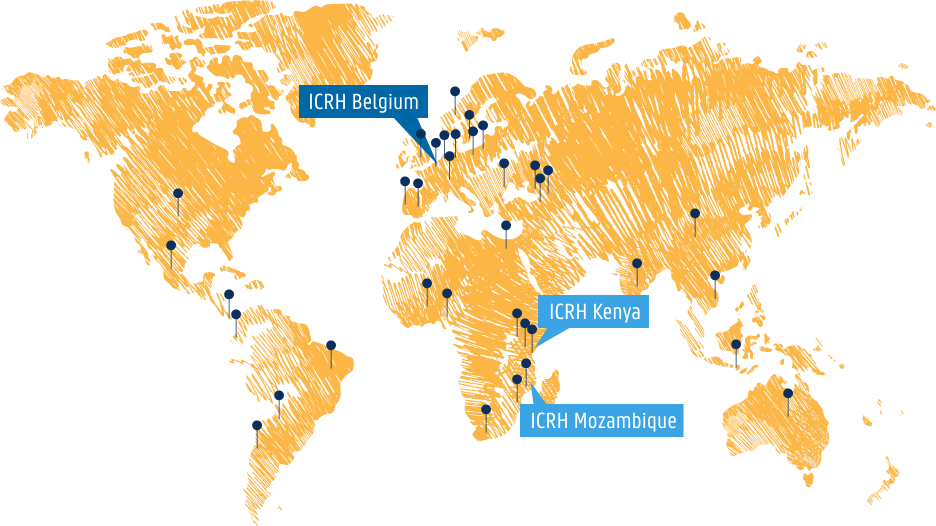International Centre for Reproductive Health Belgium
ICRH Belgium is a multidisciplinary centre operating within the Faculty of Medicine and Health Sciences at Ghent University. Besides research activities, ICRH Belgium implements projects in Europe, Latin America, Africa and Asia with a focus on developing training programmes and takes actions to defend sexual and reproductive rights.

Latest news
See more newsLatest ICRH projects
Themes
- Other
- HIV & AIDS
- Sexually transmitted infections (STIs)
- Health system research
- Adolescent and youth health
- Cervical cancer and HPV
- Female Genital Mutilation (FGM)
- Interpersonal violence
- Mother and child health
- Reproductive rights
- Family planning and contraception
- Gender
- Migrant health
- Child, early and forced marriage
- Epidemiological modeling
- Abortion
- Sexual health and wellbeing
- Policy analysis
- Monitoring and evaluation
- Clinical care
- Perinatal Mental Health
- Screening and detection
- Gender-Based Violence, perinatal mental health, capacity building
- Gender-Based Violence
- Capacity building
- Perinatal mental health
- International Conference for Survivors of Rape 2026



